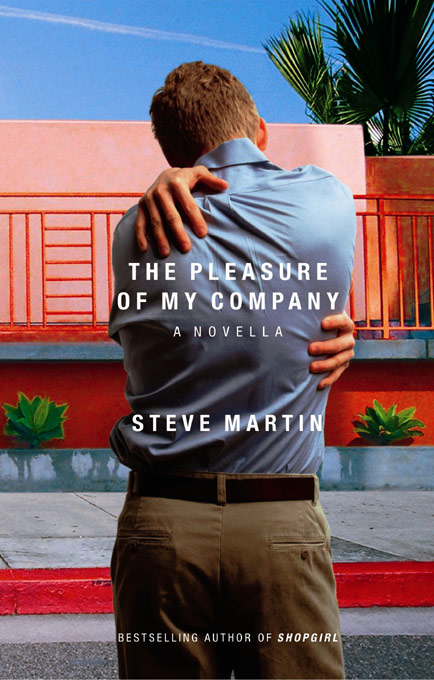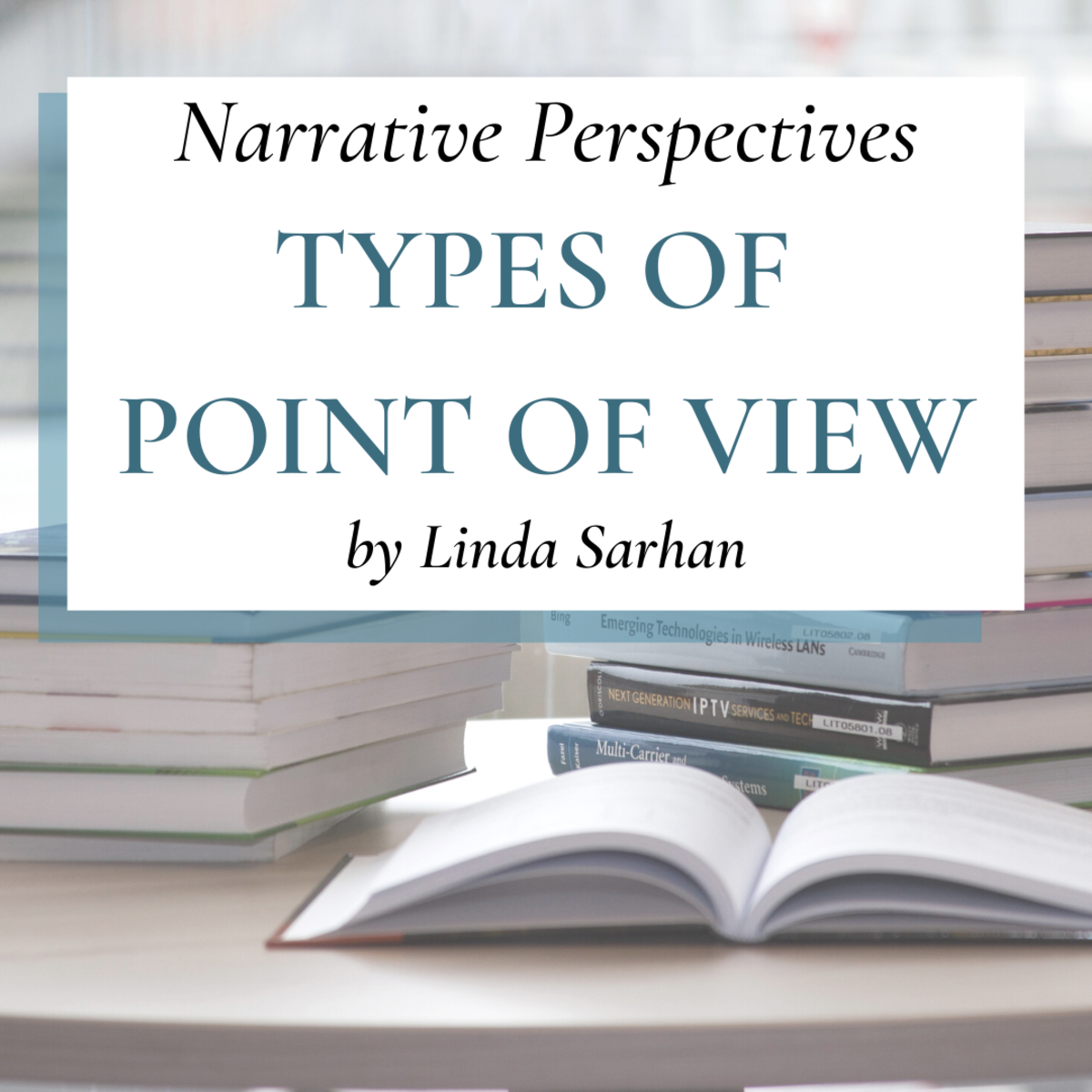A Look at Steve Martin's Short Yet Sweet Novel, The Pleasure of My Company
Buy The Pleasure of My Company on Amazon
I started off with low expectations
I was never blown away by Steve Martin's writing (and I'm still not particularly impressed with it as a whole) While Pure Drivel had some clever moments and incited some laughter from me, I found the stories to be largely fluffy and forgettable. I have an even lower opinion of the lifeless tale and bloodless characters of Shopgirl. Because of my preconceived notions, I expected a trite, pretentious story with cardboard characters and a few graceful paragraphs that would keep me ping-ponging between loving the book and thinking it was just so-so. However, I was pleasantly surprised. It's not an extraordinary book by any means, but the characters have a sense of dimension about them, the pace is quick and fun, and the writing itself is humorous. While you definitely shouldn't go out of your way to get the book, it does liven up a rainy afternoon.
A brief synopsis
The story is written in first person, and our narrator and protagonist is Daniel Pecan Cambridge, a neurotic thirty-something whose life is restricted by absurd rituals and arbitrary rules such as not using the letter e in his speech and touching all the copiers at Kinko's in a certain order. Despite his limited world, Daniel interacts with many colorful characters, including his romantic obsession, Elizabeth the realtor; his shrink, Clarissa; and the bubbly pharmacist at the Rite Aid, Zandy.
Even though he lives in a world of self-imposed requirements and irrational fears, he accomplishes big feats, such as traveling to Texas to visit his grandmother's old home and winning the Most Average American essay contest. Slowly, he begins to conquer some of his maladaptive compulsions. Despite an abrupt and unbelievable ending, the story in itself is quaint and holds more spark than Shopgirl.
The cover is whimsical and light

The protagonist is funny, frustrating, exasperating, and totally lovable
Daniel Pecan Cambridge is anything but a hero. He's a neurotic genius, trapped inside his own head and unable to make easy connections with the people in his life. His bizarre habits and phobias push him away from his neighbors, potential friends, and possible love interests. He is an incredibly frustrating character, which adds to his appeal. As the reader, I wanted to reach through the pages and push Daniel every time he hesitated at a curb. I was constantly although voicelessly rooting him on. Is he someone I'd want to have over for dinner in real life? Of course not. But, because he elicited such a strong, somewhat negative response from me, I became more invested in his small, cloistered life.
Although Daniel is a savant when it comes to mathematics (he completes math puzzles as a means of relieving his anxiety), he is hopeless when it comes to relating to others. Most of his social mistakes are a delightful combination of silly and sad, and he usually misses the mark in his own internal assessment of his interactions. The reader laughs, because they are in on a joke that the narrator doesn't get, and the reader cries because it's, well, a bit pitiful.
Daniel, accompanied by his shrink and her son, visits his grandmother's estate in Texas

The scope is small and digestible
What appeals most to me about The Pleasure of My Company is the incredible smallness of Daniel's world. While Shopgirl clumsily spanned several locations, years, and characters, in this book, we only have Daniel. Because we are brought into his microscopic life, the reader becomes attached to the protagonist and fully invested in his fears, desires, and surroundings. Because we are right up close in this tiny space, the details appear much clearer, the dialogue is more concise and effective, and the ebb and flow of tension between the characters feels more palpable. Since the reader can focus on what's going on much better without many distractions, he or she has an easier time of growing to understand and enjoy the little world that revolves around Daniel and his Santa Monica apartment.
The book contains several genuine laugh-out-loud moments
I suppose it's unfair to expect Steve Martin to be funny all the time, since he does so much more than comedy. That being said, he's at his best when he is being funny. Shopgirl turned out more dreary and plodding than plainly serious, and I stopped caring what happened about halfway through the story. In contrast, The Pleasure of My Company is light, winsome, and completely aburd, but it still retains that sense of longing and loneliness that made Shopgirl so poignant in places. Because this book plays to Martin's strengths, it's easier for the reader to forgive the shortcomings, such as the implausible occurrence between Clarissa and her ex-boyfriend and the overly convenient ending. I suppose the ability to incite laughter does a lot as far as patching gaps in Martin's sometimes flimsy creative writing work.
Listen to an excerpt from the audio book, read by Steve Martin
The ending is all too convenient and easy
Steve Martin once again fell victim to the pressure of writing an ending that would have the highest chance of pleasing his audience. Nobody likes a sad ending, right? Well, nobody likes an unbelievable happy ending, either. While Martin could have chosen to end the novel on an open, hopeful note, he instead decided to take away any sense of uncertainty and give Daniel everything he wanted and more.
Zandy, the cute pharmacist, asks Daniel out for pizza, and she turns out to be the love of his life. They move in together, have a child, and presumably live happily ever after. Because of this surge of love and affection, Daniel is magically able to overcome most of his crippling anxiety, goes back to work, and becomes fiscally successful after developing an important piece of software. Keep in mind that we learn all of this in the span of just a few paragraphs, so the reader is practically bombarded with Daniel's sudden stroke of luck.
Now, I'm not saying that Daniel should have a miserable life. That's definitely not it. But giving him such an easy resolution to his problems kind of made the small advances he made throughout the story seem paltry. As the reader, I cheered Daniel on, and I felt disappointed along with him when something didn't turn out the way he had intended or when he had to approach a new obstacle. All the growth and self-discovery he experienced in Santa Monica, with his run around the block with Brian, or on his trip down to Texas didn't feel as important at the end. What could have been a cheerful yet bittersweet end became a heavy-handed attempt to tie up the story into a neat little feel-good package. Perhaps Martin should have more respect for the emotional depth of his readers and not pander to the superficial appeal of good vibes.
A few parting thoughts
While I enjoyed the brief experience of reading this book, I can't say I can ever see myself picking it up a second time. Using the words that I've absorbed from fellow readers, it was "a good one-time read." And as for Steve Martin as an author, I think I'll take a bit of a break from him. Right now, there are a couple of copies of An Object of Beauty on the shelf at the nearest bookstore, but I don't think I'll be purchasing it anytime soon.
Daniel moved out to Santa Monica, but his fear of traveling prevented any trips home










